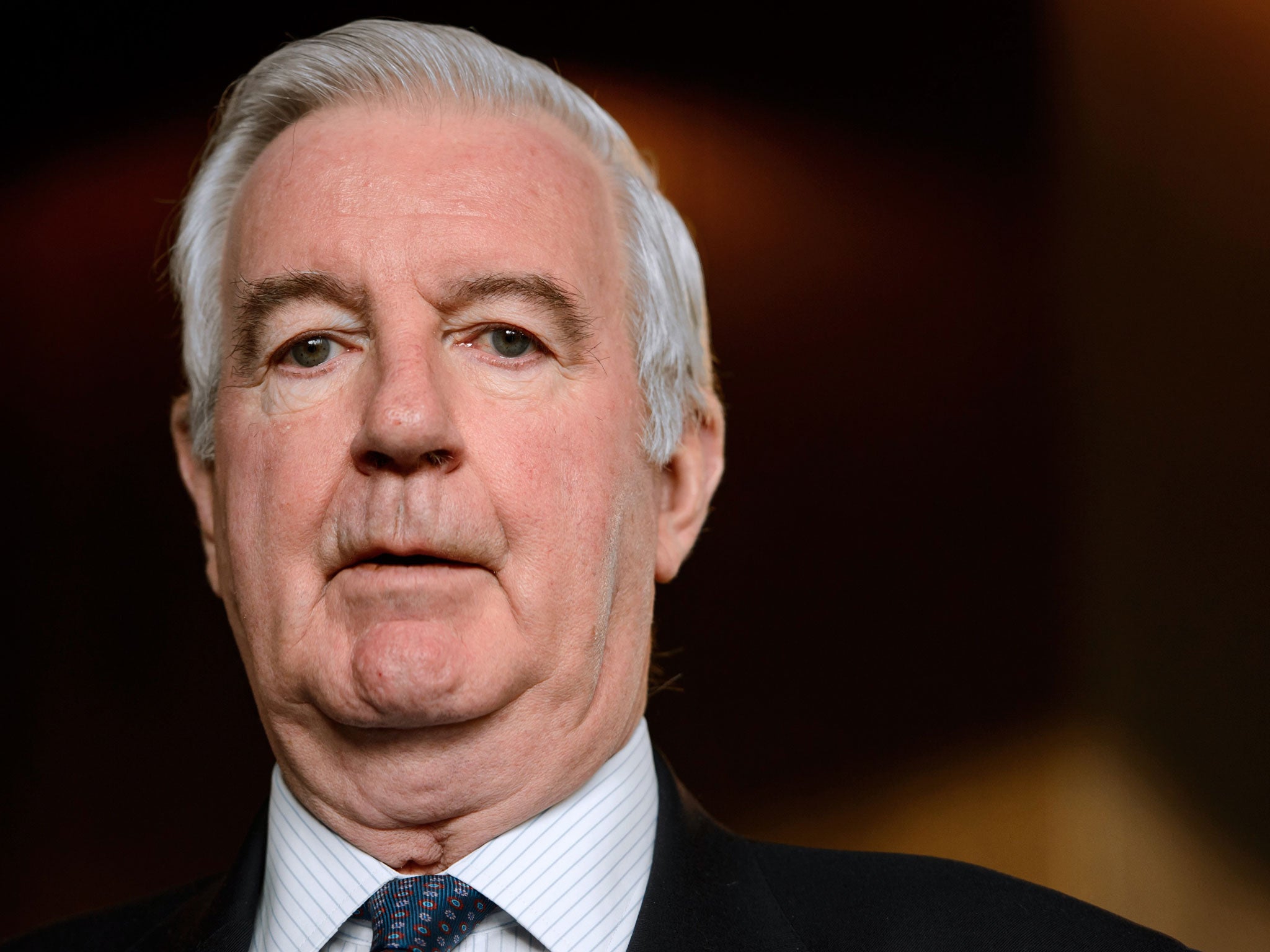New Wada chief Sir Craig Reedie takes softly-softly role on drugs

Your support helps us to tell the story
From reproductive rights to climate change to Big Tech, The Independent is on the ground when the story is developing. Whether it's investigating the financials of Elon Musk's pro-Trump PAC or producing our latest documentary, 'The A Word', which shines a light on the American women fighting for reproductive rights, we know how important it is to parse out the facts from the messaging.
At such a critical moment in US history, we need reporters on the ground. Your donation allows us to keep sending journalists to speak to both sides of the story.
The Independent is trusted by Americans across the entire political spectrum. And unlike many other quality news outlets, we choose not to lock Americans out of our reporting and analysis with paywalls. We believe quality journalism should be available to everyone, paid for by those who can afford it.
Your support makes all the difference.The new president of the World Anti-Doping Agency had a simple-sounding new year resolution: “I just want to make sport cleaner.” Sir Craig Reedie knows he will never eradicate doping. Just a month into his new role, he says: “People still cheat and that is regrettable.”
For Reedie, the role is a final foray in a career in sporting administration that has helped shape badminton and bring the Olympics to London among other things. But, while he has been part of Wada since its inception in 1999 in the wake of cycling’s Festina scandal of the year before, the new job is a role reversal.
“I’ve spent my sporting life encouraging people to take part in sport, so turning into a policeman is an intellectual challenge,” he says. “Instead of ‘let’s do this’ it’s now a lot of ‘no, no, no’.”
In conversation, Reedie is more like the polite local bobby than the snarly police detective suggested by his predecessor John Fahey, who took a robust approach to his presidency. Reedie is well aware there is the expectation for him to follow suit.
“People say, ‘Are you going to be combative?’ But that’s not really in my character,” says the Scot. “It’s a wee bit against my nature to holler abuse against people. I want to get along with people.”
Reedie is less damning than Fahey was in his assessment of some of the headaches facing Wada – from current hearings in Jamaican athletics to the ongoing Lance Armstrong saga. But he is not naïve.
“There are two schools of thought,” he says. “One is that for all the focus and money that is spent on trying to catch and discipline cheats, we don’t catch that many. There’s the assumption that people are getting away with it. Then there’s the view that perhaps the system is working. People’s perceptions probably depend a lot on what sport they come from or follow.”
One hot topic for Wada is the case of the Jamaican athletes, including sprinters Asafa Powell and Sherone Simpson. The Jamaican Anti-Doping Commission (Jadco) has been criticised for being ineffectual, with question marks about the extent of doping in athletics in Jamaica leading to a Wada audit.
Reedie says: “In effect, they’ve accepted our recommendations. I don’t think the processes were very good. For example, the board were organising and doing some of the testing. That has been rectified and they’re moving in the right direction.
“Where it’s a little unfortunate is the impression created that it was a test-free zone. But in effect the track and field athletes are on a registered testing programme. Some of it was out of competition but I think Jadco relied on the IAAF [International Association of Athletics Federations] too much doing their work.
“I think the problem is that because they are so successful in winning World Championship and Olympic medals most of the world expects you to be doing more testing in Jamaica.”
The failed tests, including those of Powell and American Tyson Gay, led some to suggest athletics was on a precipice with regards to a doping scandal. Reedie, however, does not see that as the case.
He knows athletics and other sports will face further doping issues, not least the issue of gene doping that looms large, and Wada has begun to combat or at least understand the broader topic with a gene-doping working group, which has been in place for a few years now. It is, in many ways, the great unknown of cheating in sport.
It may or may not prove to be a big battle in the 72-year-old’s tenure in a post which appears to be his hardest yet. Having helped set the wheels in motion for London 2012 to be a reality, he does not entirely agree with that suggestion; but, in fighting the dopers in sport, he knows he has his work cut out.
Join our commenting forum
Join thought-provoking conversations, follow other Independent readers and see their replies
Comments